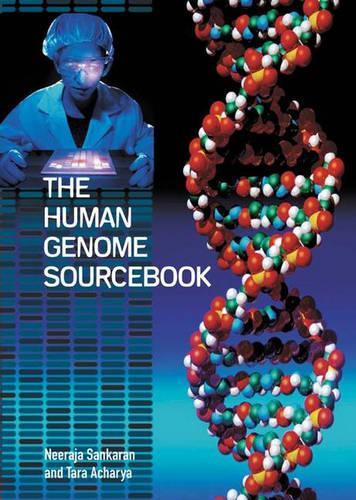
The Human Genome Sourcebook
(Hardback)
Publishing Details
The Human Genome Sourcebook
By (Author) Tara Acharya
By (author) Neeraja Sankaran
Bloomsbury Publishing PLC
Greenwood Press
30th June 2005
United States
Classifications
Professional and Scholarly
Non Fiction
Human biology
Genetics (non-medical)
599.935
Physical Properties
Hardback
408
Description
A one-stop resource that provides the most frequently needed information on the human genome What are the genes that manke-up the human genome, what do the genes do when they are acting properly, and what happens when these genes are damaged Designed for today's reader who demands quick answers to a wide range of questions, The Human Genome Sourcebook is intended to offer the non-specialist an accessible but detailed guide to the genome. The information it provides is given context: namely, the basic scientific principles of genome research, the new knowledge unearthed or created by this research, and the social and ethical implications of this knowledge. The Human Genome Sourcebook is organized in several sections to simplify the location of pertinent information: an extensive section that comprises an in-depth catalogue of human genes listed according to the roles they play in life; a chapter that relates genetic diseases to the specific genes that cause the disease; a detailed glossary giving readers a deeper understanding of genetic terms and concepts; an overview or roadmap of the physical layout of the genome sections. Borrowing from the metaphor of the genome itself, the content of the book provides both information as well as the tools necessary to access that information.. Provides in-depth information on the relationships between our genes and all aspects of our daily lives. Addresses health issues that are related to genetic abnormalities
Reviews
Acharya and Sankaran provide a remarkably thorough overview of human genetics in this readable presentation of the complex, rapidly changing field of genomics. This sourcebook presents basic biochemistry necessary for readers to understand genes' composition and function. The introduction puts current genetics research into historical context and explores its social implications. Arranged like an encyclopedia, the chapters contain alphabetical entries covering these major topics: terms and concepts in genetics, the chromosomes, genes for normal functions, and genetic diseases. Liberal cross-references link relevant sections, and a thorough index makes it easy to locate topics. The language is straightforward, including some notes on scientists' major discoveries and the development of significant research techniques.In addition to providing a good introduction to the human genome for high school readers, this work could serve as a supporting reference for students in human or medical genetics classes. Recommended. Lower- and upper-division undergraduates, general readers, and practitioners. * Choice *
Despite the apparent popularity of forensic detective shows and widespread talk of DNA testing, few Americans understand the scientific basis of such ideas. In this volume, a scientist and a freelance science writer team up to explain the basics of genetic theory for the general reader. Following an overview of the progress of genetic research in the past century, the authors define 124 key concepts, from cloning and genetic codes to mutations and gene splicing.Their guide will be useful in both academic and public libraries. * Lawrence Looks at Books *
The Human Genome Sourcebook is written for intelligent and curious readers who lack an advanced knowledge of genetics, but who are interested in learning more than just headlines and buzzwords. The book is about the genes that determine how our body is made, how they help us conduct our normal life's activities, and what happens when they are abnormal. * SB&F *
Don't look for yet another book about the Human Genome Project, though of course it's mentioned - Human Genome Sourcebook is much more, discussing what constitutes the human genome, what genes do when they are acting properly and what happens when they're damaged. And even better, it's written with non-specialists in mind: details are inclusive but not so technical the average lay person can't understand, and while it offers extensive in-depth details and chapters in everything from terms and concepts to diseases, its function as an understandable overview isn't lost. A 'must' for any high school or college collection and perfect for public library holdings, as well. * MBR Bookwatch *
Author Bio
TARA ACHARYA is a consultant with the Rockefeller Foundation working on international health issues. She was a research associate at the University of Toronto and has worked as a scientist in the biotechnology industry. NEERAJA SANKARAN is a science writer and a Ph.D. student in the history of medicine and science at Yale University.
